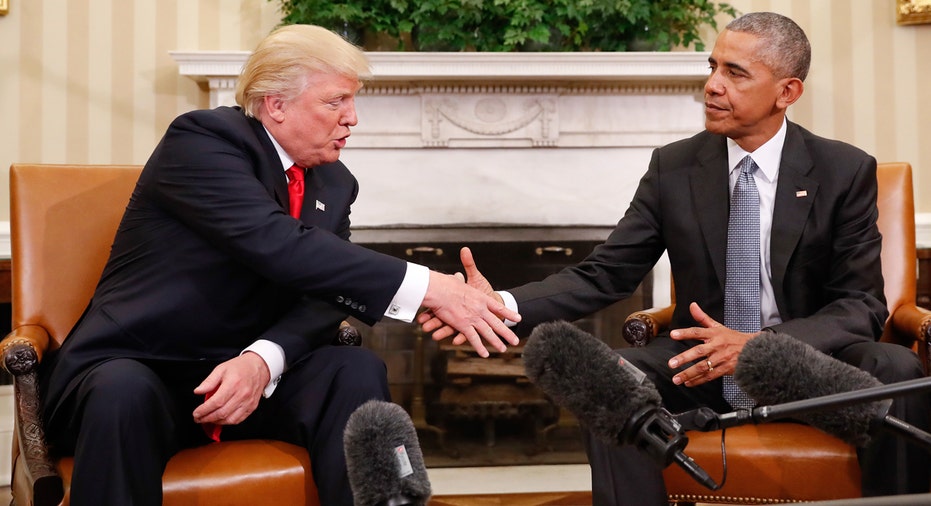Open Letters and Fake News in Obama, Trump Era

Open letters have long been used by notable people to great effect. They’ve sparked public outcries that stopped age-old prejudices in their tracks and ignited powerful cultural movements.
Emile Zola’s 1898 “J’Accuse…!” to the President of France drew attention to antisemitism in the wrongful conviction of a Jewish Captain, Alfred Dreyfus, for the crime of treason. And Martin Luther King, Jr.’s Letter from Birmingham Jail famously served to bolster the American Civil Rights Movement at a critical juncture.
That’s all in the past. Today, open letters are used more and more by politicians, CEOs and special interests to lobby for causes that aren’t nearly as virtuous as those of their predecessors. They’re usually intended to sway public opinion or influence consumer behavior, and not necessarily in a good way.
The shift from noble to nefarious, or at least self-serving, didn’t occur all at once, mind you. Looking back, one open letter written by a particularly innovative and opportunistic young programmer may very well have been the first to straddle the line between righteous and self-righteous.
In 1976, the head of a little three-person company named Micro-Soft wrote an open letter in an effort to get computer hobbyists to quit illegally copying his programs and start paying for them, for a change. Bill Gates’s plea to end the pirating of software didn’t make him the richest man in the world, but it was a pretty good start.
Decades later, the advent of blogs, social networks and user-generated content would open the floodgates for anyone and everyone to peddle their personal causes or expound on their pet peeves online. But every so often, someone or something of great import would break through the fracas and get everyone’s attention.
A 2007 open letter with the innocuous title of “Thoughts on Music” rocked the music world, causing an avalanche of responses from a who’s who of industry leaders, mostly in the form of, you guessed it, open letters. Ironically, that essay was written by Gates’s favorite frenemy, Steve Jobs, and the subject, once again, was piracy.
As chronicled in Chris Higgins’s “The Open Letter-Off of ’07,” Jobs made a plea for music publishers to remove the shackles of DRM (Digital Rights Management) that effectively locked users into iTunes and made their life miserable. Since that would hardly benefit Apple, it looked as if Jobs was taking consumers’ side. But looks can be deceiving.
According to “The Many Facades of DRM” (thankfully not an open letter) by former Apple engineer Rod Schultz, Jobs was actually trying to get out in front of a fait accompli. Schultz claimed the music labels had already decided to abandon DRM – not to benefit consumers, but to diminish Apple’s dominance of the industry – so when they did, it seemed like Apple made it happen. If that was the plan, it worked.
Fast-forward to 2014. An open letter by Netflix CEO Reed Hastings and another, by President Barack Obama, turned the tide on net neutrality. Countless open letters by consumer advocates and other special interest groups followed, giving FCC chairman Tom Wheeler the support he needed to sway public opinion and pass strict rules to regulate broadband internet.
The thing is, Hastings’s claims that Netflix traffic was intentionally throttled by Comcast and other ISPs turned out to be bunk. It was all just a scheme for Netflix to get out of paying for back-end network connections to effectively handle the extraordinary amount of traffic its streaming video service generates. And the public bought it.
Donald Trump came out strongly against net neutrality, calling it a “top-down power grab” during the campaign. Indeed, I agree it was that, among other things. Since the election, the President-elect has been deluged by open letters lobbying on behalf of Obamacare, global climate change, softer immigration policies and all sorts of regulations. Are their motives genuine or deceitful? What you do think?
Full disclosure: I have, in the distant past, written two open letters to newly appointed CEOs: Akio Toyoda of Toyota and Google’s Larry Page. They were really just articles disguised as open letters. I intended no malice, have no regrets and reserve the right to write others in the future.



















